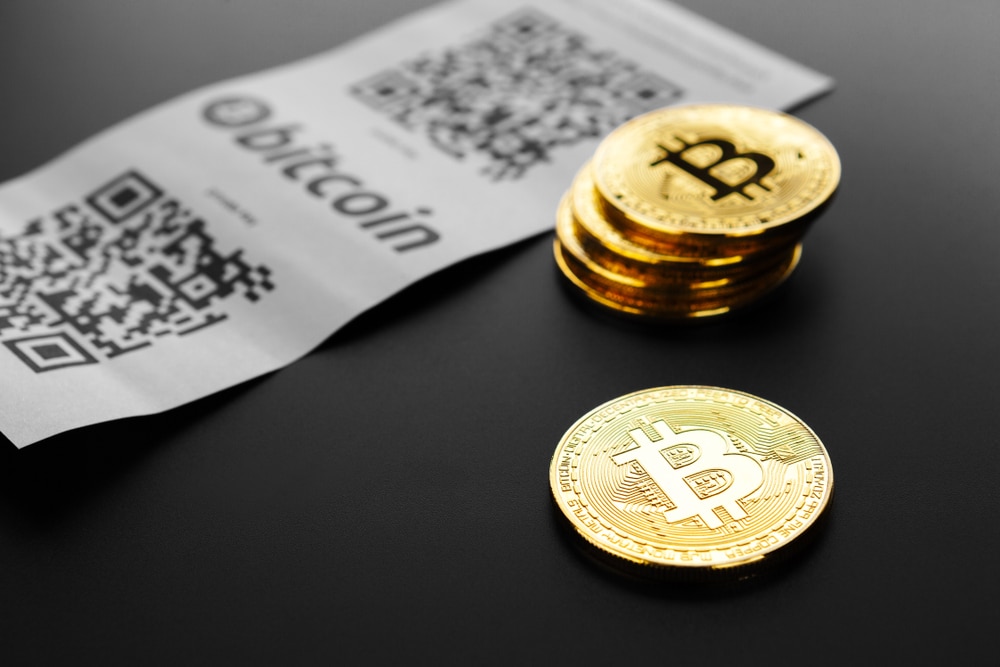Cryptocurrency wallets come in various forms, with two of the most popular being hardware and mobile wallets. This article discusses a lesser-known type of crypto wallet called paper wallet. Keep reading to understand how it works and its benefits.
What is a Crypto Paper Wallet?
Paper wallets are physical pieces of paper that contain the private and public keys of crypto wallets. These keys come in the form of QR codes or alphanumeric strings that enable crypto users to access and store their tokens offline.
📈🤖 Unlock unparalleled trading potential with GPT Stocks Master AI! Revolutionize your portfolio, leveraging real-time insights and predictive analytics. Don’t miss out – step into a world where precision and profitability meet. Ready to transform your trading journey? Click “Master My Trades” now for your exclusive access! ✨🚀📊
It is safe to call paper wallets cold storage wallets since they keep digital assets in an offline environment. Note that these wallets are self-custodial, meaning users have complete control over their private keys.
The History of Crypto Paper Wallets
The first paper wallet was created in 2010, with its creators touting it as the safest way to maintain private keys. However, in 2016, paper wallets started losing popularity after several crypto experts raised some concerns, one being the absence of seed phrases, which would enable users to regain access to their wallets if they misplaced their pieces of paper.
Furthermore, the emergence of convenient hardware wallets like Ledger made paper wallets less popular. Nonetheless, some crypto users have embraced paper wallets to date.
How a Cryptocurrency Paper Wallet Works
As mentioned earlier, paper wallets are pieces of paper with public and private keys that allow users to make on-chain transactions. These keys are usually generated using specialized key generator platforms.
When generating a private or public key for your wallet, you must ensure the key generator platform isn’t connected to the internet. After the keys have been generated, you can print them as strings or QR codes.
If you want to receive Bitcoin, simply share the generated public key with the sender. Further, avoid sharing your private key and only use it to authorize transactions.
Benefits of Crypto Paper Wallet
Offline Storage
Since paper wallets store digital assets offline, they minimize the vulnerabilities associated with online crypto wallets. In other words, they make it difficult for hackers to access users’ crypto assets.
Self-Custody and Privacy
As stated, users of paper wallets take full responsibility for their private keys rather than relying on third parties like centralized exchanges to be custodians of these keys.
Moreover, paper wallet users do not have to complete Know Your Customer checks to store their assets, thus retaining their privacy.
Cost-effectiveness
Paper wallets offer users an inexpensive way to store their digital assets. You do not need to pay anything to generate such wallets.
Risks of Paper Wallets
Physical Damage
Paper wallets are pieces of paper. That means they wear and tear over time, leading to the loss of cryptocurrencies.
Theft
If paper wallets are not stored in a safe environment, they might be stolen by bad actors who could gain access to users’ crypto assets.
Best Practices to Adopt as a Paper Wallet User
Here are safety measures you must take as a crypto paper wallet user:
1. Ensure the key generator platform is disconnected from the internet when generating public and private keys.
2. Laminate your crypto paper wallet to protect it from physical damage.
3. Make multiple copies of your paper wallet to access your funds even when you lose the original wallet.
How to Create a Cryptocurrency Paper Wallet
Here is how you can create a paper wallet:
1. Visit bitaddress.org and then turn off the internet.
2. Now, move your mouse around the screen to generate random numbers and letters for your public and private keys.
3. Print the generated keys by clicking the “Print” button.
4. Make several copies of those keys and laminate them for extra longevity.
The Future of Crypto Paper Wallets
Although numerous hardware wallets have been developed in recent years, some crypto users find them expensive, so they’ve continued to use crypto paper wallets as they are cost-effective. That said, paper wallets will likely be here for a long time.

